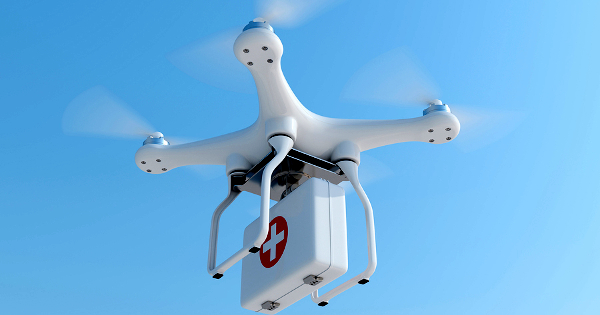BENGALURU: India’s first official beyond visual line of sight (BVLOS) medical drone delivery experiment is scheduled to begin this week in Gauribidanur, some 80km from Bengaluru.
While the consortium of firms led by Bengaluru’s Throttle Aerospace Systems (TAS) had got Directorate General of Civil Aviation (DGCA) approval for object delivery experiments as early as March 2020, the pandemic had led to delays in some other permissions from agencies.
Having now secured all clearances, the firm will carry out the first set of trials for 30-45 days, beginning June 18. Noted cardiac surgeon Dr Devi Shetty has backed the trials and Narayana Health will be partnering with the consortium, providing medicines that will be used for transport during the trials.
Nagendran Kandasamy, CEO, TAS, told STOI: “Two other consortia also have permission for BVLOS experiments, but ours is the first legal/official medical drone delivery experiment. We have come a long way since 2016 and are at a pivotal moment. After a long wait, we now have an official go-ahead from the BVLOS Experiment Monitoring Committee (BEMC) and we look forward to leveraging commercial drone delivery in India soon.”
Aside from TAS, the consortium has Involi-Swiss, which specialises in air traffic awareness systems for professional drone applications, which is providing unmanned traffic management (UTM) systems, and Honeywell Aerospace as a safety expert.
The consortium will use two variants of its drone — MedCOPTER and TAS’ on-demand delivery software called RANDINT — during the experiment.
“The smaller variant of MedCOPTER can carry 1kg for up to 15km, while the other can carry 2kg for up to 12km. We will be testing both for range and safety through the 30-45 days, during which we have to fly for at least 100 hours as per DGCA. We are aiming to fly for around 125 hours. The logs will be reviewed and submitted to the authorities at the end of the trial,” Kandasamy said.
Narayana Health’s partnership, Kandasamy explained, was for the chain to understand what kinds of medicines could be transported using drones, what could be the challenges and whether or not this can be used routinely in future.
“Our software will receive the demand raised by Narayana. Nobody will know who the recipient is, but the delivery will be made to the pre-loaded address,” Kandasamy said.
Aside from Narayana, Udaan, the B2B e-commerce startup, has also approached the consortium for some information on the commercial front. “They are the other user partners. They are interested in knowing the per kilometre cost and other such commercial aspects of object delivery,” Kandasamy said.
Source: ToI
You may also like
-
India Against Mpox
-
Combination of ‘Siddha’ Drugs Reduces Anemia in Adolescent Girls: Study
-
Suspected Mpox Case Under Investigation; Patient Put Under Isolation, No Cause for Alarm
-
Prime Minister Applauds India’s Best Ever Performance at the Paralympic Games
-
National Exit Test (NExT) for Ayush to be Effective from 2021-2022 Batch: Union Minister of Ayush Shri Prataprao Jadhav
